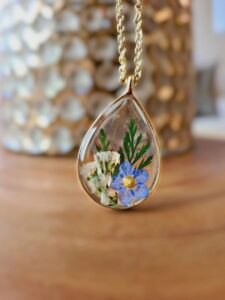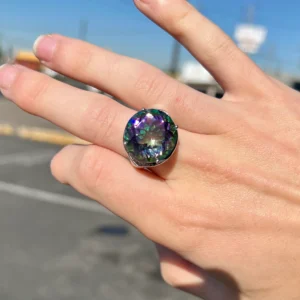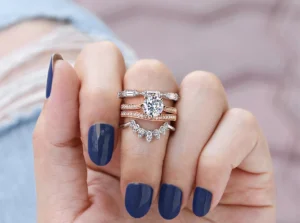Sustainability isn’t just a buzzword it’s a buying decision. As consumers increasingly demand transparency and eco-consciousness from the brands they support, the jewelry industry is undergoing a materials revolution. Retailers, from indie boutiques to large-scale department stores, are rethinking everything from metal sourcing to gemstone selection in an effort to align with the values of today’s mindful shoppers. Here’s why going green in jewelry isn’t a trend it’s the future.
Going Green in Jewelry: Why Retailers Are Rethinking Materials

1. The Rise of the Conscious Consumer
Modern consumers want to feel good about what they wear. The new generation of jewelry buyers actively researches:
- How materials are sourced
- What environmental impact production has
- Whether brands support ethical labor practices
This awareness has transformed sustainability from a marketing perk into a sales driver.
2. Recycled Metals Take the Lead
Recycled gold and silver are among the easiest ways for jewelry brands to reduce environmental harm.
Benefits of Recycled Metals:
- Reduces the need for destructive mining
- Cuts down carbon emissions
- Conserves energy compared to refining virgin metal
Retailers are now working with manufacturers that offer certified recycled silver and gold both to protect the planet and strengthen brand trust.
3. Ethical Gemstones Are in Demand
Shoppers no longer view “sparkle” the same way. They want to know where stones come from and how they were mined.
Key Trends:
- Lab-grown diamonds: Same chemical structure as mined diamonds but lower environmental and human impact
- Traceable origin gems: Clear documentation on source and supply chain
- Upcycled stones: Vintage stones reset into modern designs
Retailers offering ethical gemstones report increased customer loyalty and lower return rates.
4. Non-Traditional Materials Gain Ground
Sustainability has expanded the definition of “precious.” Many brands are exploring:
- Plant-based resins
- Recycled glass and ceramics
- Tagua nut and bamboo
These materials allow for creative, lightweight, and eco-friendly designs that still feel luxurious.
5. Certifications & Transparency Seal the Deal
Third-party certifications give retailers a competitive edge by proving their claims:
- Responsible Jewellery Council (RJC)
- Fairmined Gold Certification
- B-Corp for overall sustainability standards
Clear labeling on product tags or online listings helps shoppers make informed decisions quickly.
6. Packaging Goes Green Too
Sustainable materials don’t stop with the product. Jewelry packaging is also being reimagined:
- Recycled paper boxes
- Organic cotton pouches
- Compostable mailers
- Soy-based inks and minimal plastic use
Retailers that integrate eco-packaging into their brand identity see higher perceived value and social media engagement.
7. Challenges Retailers Must Navigate
While going green has benefits, it’s not without hurdles:
- Higher production costs for sustainable materials
- Sourcing complexity for traceable gems or recycled metals
- Education gap: Customers may not understand why “greener” sometimes means “costlier”
The solution? Transparency, storytelling, and consistent brand education.
8. Retailer Strategies for Success
To thrive while going green, retailers can:
- Launch capsule collections focused solely on sustainable jewelry
- Offer side-by-side comparisons of traditional vs. eco options
- Collaborate with ethical designers for exclusive drops
- Create in-store or online sustainability guides
These initiatives boost both revenue and reputation.
9. Real-World Case: A Silver Shift
A mid-sized jewelry retailer in Europe switched to 100% recycled silver in its core ring collection. While unit cost rose slightly, online sales increased 28% over the next quarter. Their customers cited ethical sourcing as a deciding factor in purchases and returned less due to emotional attachment to the story behind the product.
Sustainability is Style with Substance
Going green in jewelry isn’t just about saving the planet it’s about creating products people want to wear and feel proud of. As environmental awareness grows, brands that lead with transparency, responsibility, and intention will outshine the competition.
Retailers who embrace this movement not only future-proof their business but also build trust and loyalty in an ever-evolving market.
Because the new luxury isn’t just sparkle it’s sustainability.



